How to Get AWS DevOps Certified in 2024: A Step-by-Step Guide for Indian Professionals
How to Get AWS DevOps Certified in 2024: A Step-by-Step Guide for Indian Professionals
Oct 9, 2024
Jithin
Oct 9, 2024


Jithin
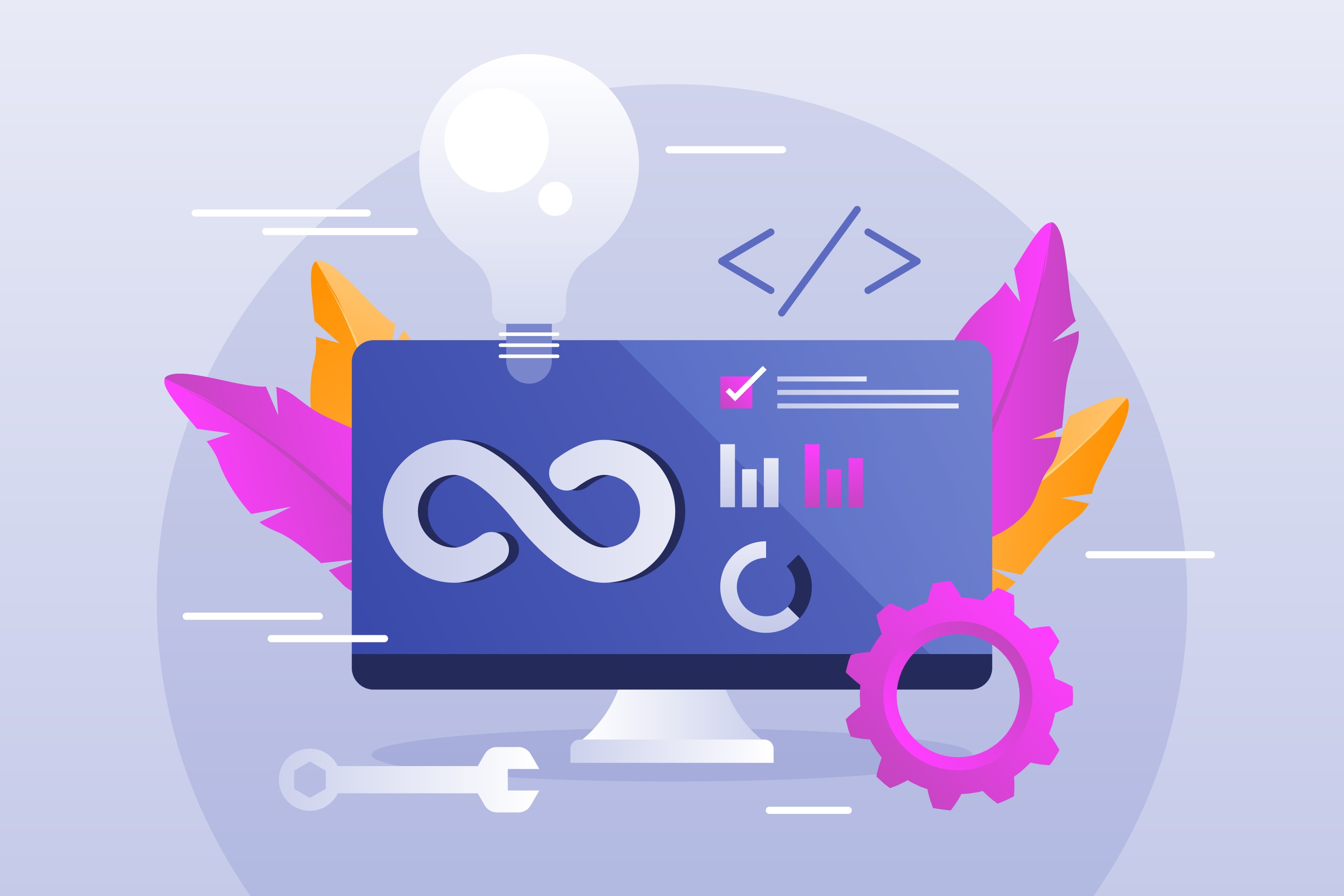




AWS DevOps Certification: Your Gateway to a High-Paying Career in 2024
It's Monday morning, and you are scrolling through job listings when you notice something interesting. Nearly every cloud computing role mentions "AWS DevOps" as a required skill. You are not alone in this observation. According to recent data, DevOps engineer salaries have surged by 58% in the last year, making it one of the hottest career paths in tech.
If you are looking to ride this wave of opportunity, an AWS DevOps certification might be your golden ticket. But where do you start? Let's dive into everything you need to know about getting AWS DevOps certified in 2024.
Why AWS DevOps Certification Matters?
The cloud computing landscape is evolving rapidly, and AWS remains the undisputed leader with a 32% market share. But here's the kicker - while cloud adoption is soaring, there's a significant skills gap in the industry. Companies are desperately seeking professionals who can bridge the divide between development and operations.
This is where AWS DevOps certification comes in. It's not just another certificate to add to your LinkedIn profile. It's a validation of your ability to:
Implement continuous delivery systems
Automate security controls and governance processes
Define and deploy monitoring and logging systems
Optimize operational efficiency through automation
The Growing Demand for AWS DevOps Skills:
Let's look at some compelling statistics:
94% of enterprises already use cloud services.
DevOps practices can lead to 24x faster recovery from failures.
Organizations using DevOps see 22% improvement in software quality.
Companies with strong DevOps practices deploy 208 times more frequently.
Impact on Business Outcomes
Faster Time to Market
Reduce deployment frequency from months to days.
Automate manual processes for quicker releases.
Improved Collaboration
Break down silos between development and operations.
Foster a culture of shared responsibility.
Enhanced Security
Implement security as code.
Automate security testing and compliance checks.
Understanding AWS DevOps Certification Levels
Before diving into certification prep, you need to know your options. AWS offers several certifications, but for DevOps, these are your primary paths:
AWS Certified DevOps Engineer - Professional:
The crown jewel of DevOps certifications.
Requires 2+ years of experience in AWS environments.
Covers advanced concepts like CI/CD pipelines and automation.
Focus on complex, real-world scenarios.
AWS Certified Developer - Associate:
A stepping stone to the Professional certification.
Ideal if you're starting your AWS DevOps journey.
Focuses on core AWS services and basic automation.
Emphasizes coding and development in AWS.
If you are new to AWS, you might want to start with our AWS Tutorial for Beginners to build a strong foundation.
Choosing the Right Certification Path
Your choice to the certification depends on several factors:
Current Experience Level:
Beginners should start with the Associate level.
Experienced professionals can aim directly for Professional.
Consider your existing cloud and development background.
Career Goals:
Team lead positions often require Professional certification.
Associate level is sufficient for many DevOps roles.
Some roles may require additional specializations.
Time Commitment:
Associate level typically needs 3-6 months of preparation.
Professional level may require 6-12 months.
Factor in your current workload and learning pace.
Certification Prerequisites
Associate Level:
Basic understanding of programming languages.
Familiarity with command-line interface.
Understanding of basic networking concepts.
Professional Level:
Two or more years of AWS experience.
Strong scripting and automation skills.
Experience with CI/CD tools and methodologies.
What Does the AWS DevOps Certification Cover?
The certification isn't just about memorizing AWS services. It tests your ability to:
Implement CI/CD Pipelines:
Tools like AWS CodePipeline and Jenkins.
Automated testing and deployment strategies.
Infrastructure as Code using CloudFormation.
Version control with AWS CodeCommit.
Build automation with AWS CodeBuild.
Security and Governance:
IAM roles and permissions.
Security best practices in automation.
Compliance and auditing.
Network security in AWS.
Data protection and encryption.
Monitoring and Logging:
CloudWatch for metrics and alarms.
Log analysis and troubleshooting.
Performance optimization.
Automated response to events.
Custom metrics and dashboards.
High Availability and Disaster Recovery:
Multi-AZ deployments.
Backup and restore strategies.
Fault tolerance.
Auto-scaling configurations
Load balancing techniques
Our DevOps Tutorial for Beginners can help you understand these concepts better.
Deep Dive: Key AWS Services for DevOps
Let's explore some crucial services you will need to master:
AWS CodePipeline:
Yaml
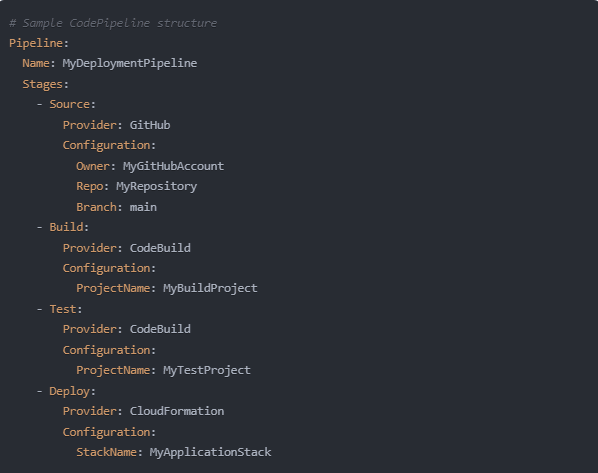
AWS CloudFormation:
Infrastructure as Code.
Template-driven resource creation.
Stack management and updates.
Drift detection and remediation.
Nested stacks for complex architectures.
AWS Elastic Beanstalk:
Platform as a Service (PaaS).
Automated application deployment.
Environment management.
Built-in load balancing.
Automatic scaling capabilities.
AWS Systems Manager:
Automation of operational tasks.
Patch management.
Configuration management.
Resource grouping.
Operational insights.
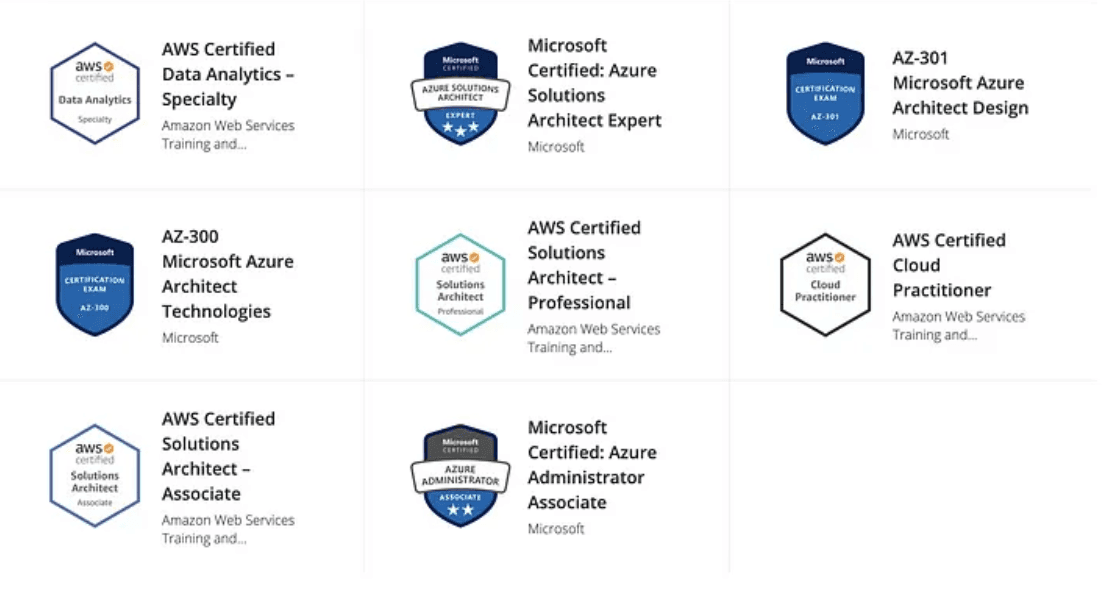
Source: Image
Preparing for the Certification
Now, let's talk strategy. How do you prepare for this certification? Here's a battle-tested approach:
Get Hands-On Experience:
Theory alone won't cut it.
Build real projects using AWS services.
Our AWS DevOps Course Free is a great starting point.
Participate in hands-on labs and workshops.
Study the Right Materials:
Official AWS documentation.
Practice exams.
Video courses and hands-on labs.
AWS whitepapers and best practices guides.
Focus on Key Services:
Not all AWS services are created equal.
Prioritize the 10 Must-Know AWS Services.
Master services like CodePipeline, CloudFormation, and Elastic Beanstalk.
Understand service integrations and limitations.
Creating Your Study Plan
Here's a 12-week study plan to get you started:
Week 1-2: Core AWS Services:
EC2, VPC, IAM.
Hands-on labs and practice.
Basic networking concepts.
AWS global infrastructure.
Week 3-4: CI/CD Services:
CodePipeline, CodeBuild, CodeDeploy.
Build a simple CI/CD pipeline.
Version control best practices.
Automated testing strategies.
Week 5-6: Infrastructure as Code:
CloudFormation, Elastic Beanstalk.
Create and deploy templates.
Template design patterns.
Cross-stack references.
Week 7-8: Monitoring and Logging:
CloudWatch, X-Ray.
Set up monitoring for applications.
Log aggregation and analysis.
Creating custom metrics.
Week 9-10: Security and Governance:
Security best practices.
Compliance frameworks.
Identity and access management.
Encryption and key management.
Week 11-12: Practice and Review:
Take practice exams.
Review weak areas.
Join study groups.
Build a complex project.

Source: Image
Common Challenges and How to Overcome Them
Let's be real - this certification isn't a walk in the park. Here are some common challenges and how to tackle them:
Time Management During the Exam:
Practice with timed mock tests.
Learn to read and understand questions quickly.
Focus on keywords in questions.
Skip difficult questions and return to them later.
Complex Scenarios:
Focus on understanding the 'why' behind solutions.
Practice architecting solutions for various use cases.
Join study groups to discuss scenarios.
Break down complex problems into smaller parts.
Keeping Up with AWS Updates:
Follow AWS blogs and announcements.
Participate in AWS community events.
Regular hands-on practice with new features.
Subscribe to AWS update notifications.
Real-World Applications of AWS DevOps Skills
The certification is great, but how does it translate to real-world scenarios? Here's what you can do with your AWS DevOps skills:
Automate Infrastructure:
python
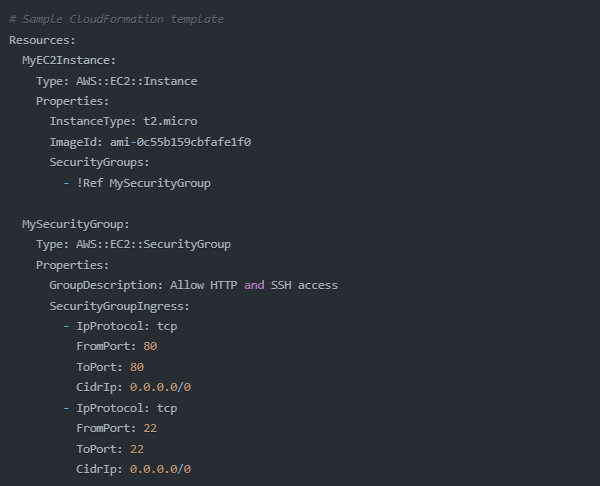
Build CI/CD Pipelines:
Automate testing and deployment.
Ensure consistent and reliable releases.
Implement blue-green deployments.
Set up automated rollbacks
Integrate security testing.
Implement Monitoring and Alerting:
Set up proactive monitoring.
Create automated responses to incidents.
Implement logging best practices.
Design scalable logging architectures.
Create custom monitoring dashboards.
Industry Impact
Companies implementing DevOps practices report:
63% improvement in software quality.
63% increase in release frequency.
55% improvement in security.
49% reduction in operational costs.
Career Opportunities After Certification
With AWS DevOps certification, you're not just limited to one career path. Here are some roles you could pursue:
DevOps Engineer:
Average salary: ₹12,00,000 - ₹18,00,000 per annum.
Focus on automation and CI/CD.
Key responsibilities:
Implementing CI/CD pipelines.
Automating infrastructure.
Monitoring and optimization.
Cloud Architect:
Average salary: ₹18,00,000 - ₹24,00,000 per annum.
Design and implement cloud solutions.
Key responsibilities:
Designing scalable architectures.
Ensuring security and compliance.
Cost optimization.
Site Reliability Engineer:
Average salary: ₹15,00,000 - ₹22,00,000 per annum.
Focus on system reliability and scalability.
Key responsibilities:
Ensuring system reliability.
Implementing monitoring solutions.
Incident response and management.
Platform Engineer:
Average salary: ₹14,00,000 - ₹20,00,000 per annum.
Build and maintain development platforms.
Key responsibilities:
Creating developer tools.
Streamlining deployment processes.
Managing infrastructure platforms.
The average salary for certified AWS DevOps professionals in India ranges from ₹8,00,000 to ₹24,00,000 per annum, depending on experience and location.
Industry Trends
The DevOps market is expected to grow to $25.5 billion by 2028. Key trends include:
Increased adoption of microservices.
Focus on security (DevSecOps).
AI/ML integration in DevOps practices.
Serverless computing.
GitOps and Infrastructure as Code.
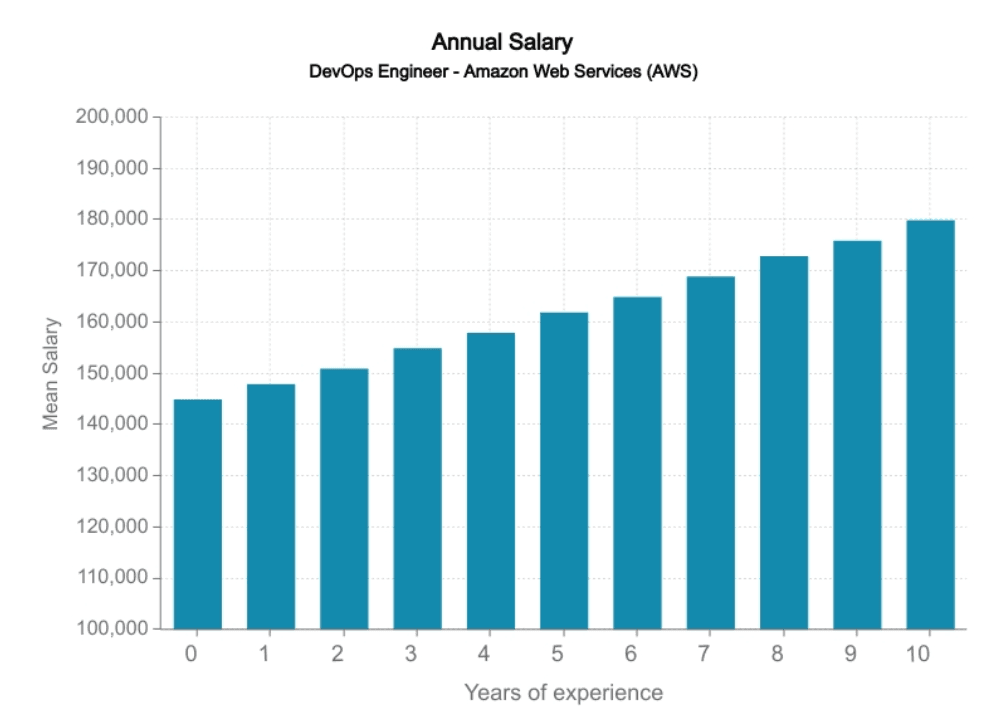
Source: Image
Ready to Take the Next Step?
AWS DevOps certification isn't just about passing an exam - it's about transforming your career. At Skillect, we've helped thousands of professionals achieve their AWS certification goals. Our AWS DevOps training combines:
Hands-on projects.
Expert-led sessions.
Real-world scenarios.
Community support.
Job placement assistance.
What Sets Skillect Apart?
Industry-Aligned Curriculum:
Updated regularly to match AWS updates.
Focused on practical, job-ready skills.
Designed by industry experts.
Expert Instructors:
Years of industry experience.
Passionate about teaching.
Hands-On Learning:
Real-world projects.
Access to AWS resources.
Industry-standard tools and practices.
Career Support:
Resume building workshops.
Interview preparation.
Job placement assistance.
Don't let another opportunity pass you by. Join Skillect today and take the first step towards your AWS DevOps certification. Our team of industry experts is ready to guide you through every step of your learning journey.
Remember, in the world of cloud computing, standing still means falling behind. Are you ready to move forward?
Your Next Move
The path to AWS DevOps certification might seem challenging, but with the right guidance and determination, it's absolutely achievable. At Skillect, we have helped numerous professionals like you navigate this journey successfully.
Are you ready to take the next step? Our comprehensive AWS DevOps course is designed to take you from basics to certification-ready. With expert instructors, hands-on projects, and a supportive community, we are here to help you achieve your AWS DevOps goals.
Don't let another day pass by without investing in your future. Visit Skillect today and start your AWS DevOps certification journey. Your future self will thank you!
AWS DevOps Certification: Your Gateway to a High-Paying Career in 2024
It's Monday morning, and you are scrolling through job listings when you notice something interesting. Nearly every cloud computing role mentions "AWS DevOps" as a required skill. You are not alone in this observation. According to recent data, DevOps engineer salaries have surged by 58% in the last year, making it one of the hottest career paths in tech.
If you are looking to ride this wave of opportunity, an AWS DevOps certification might be your golden ticket. But where do you start? Let's dive into everything you need to know about getting AWS DevOps certified in 2024.
Why AWS DevOps Certification Matters?
The cloud computing landscape is evolving rapidly, and AWS remains the undisputed leader with a 32% market share. But here's the kicker - while cloud adoption is soaring, there's a significant skills gap in the industry. Companies are desperately seeking professionals who can bridge the divide between development and operations.
This is where AWS DevOps certification comes in. It's not just another certificate to add to your LinkedIn profile. It's a validation of your ability to:
Implement continuous delivery systems
Automate security controls and governance processes
Define and deploy monitoring and logging systems
Optimize operational efficiency through automation
The Growing Demand for AWS DevOps Skills:
Let's look at some compelling statistics:
94% of enterprises already use cloud services.
DevOps practices can lead to 24x faster recovery from failures.
Organizations using DevOps see 22% improvement in software quality.
Companies with strong DevOps practices deploy 208 times more frequently.
Impact on Business Outcomes
Faster Time to Market
Reduce deployment frequency from months to days.
Automate manual processes for quicker releases.
Improved Collaboration
Break down silos between development and operations.
Foster a culture of shared responsibility.
Enhanced Security
Implement security as code.
Automate security testing and compliance checks.
Understanding AWS DevOps Certification Levels
Before diving into certification prep, you need to know your options. AWS offers several certifications, but for DevOps, these are your primary paths:
AWS Certified DevOps Engineer - Professional:
The crown jewel of DevOps certifications.
Requires 2+ years of experience in AWS environments.
Covers advanced concepts like CI/CD pipelines and automation.
Focus on complex, real-world scenarios.
AWS Certified Developer - Associate:
A stepping stone to the Professional certification.
Ideal if you're starting your AWS DevOps journey.
Focuses on core AWS services and basic automation.
Emphasizes coding and development in AWS.
If you are new to AWS, you might want to start with our AWS Tutorial for Beginners to build a strong foundation.
Choosing the Right Certification Path
Your choice to the certification depends on several factors:
Current Experience Level:
Beginners should start with the Associate level.
Experienced professionals can aim directly for Professional.
Consider your existing cloud and development background.
Career Goals:
Team lead positions often require Professional certification.
Associate level is sufficient for many DevOps roles.
Some roles may require additional specializations.
Time Commitment:
Associate level typically needs 3-6 months of preparation.
Professional level may require 6-12 months.
Factor in your current workload and learning pace.
Certification Prerequisites
Associate Level:
Basic understanding of programming languages.
Familiarity with command-line interface.
Understanding of basic networking concepts.
Professional Level:
Two or more years of AWS experience.
Strong scripting and automation skills.
Experience with CI/CD tools and methodologies.
What Does the AWS DevOps Certification Cover?
The certification isn't just about memorizing AWS services. It tests your ability to:
Implement CI/CD Pipelines:
Tools like AWS CodePipeline and Jenkins.
Automated testing and deployment strategies.
Infrastructure as Code using CloudFormation.
Version control with AWS CodeCommit.
Build automation with AWS CodeBuild.
Security and Governance:
IAM roles and permissions.
Security best practices in automation.
Compliance and auditing.
Network security in AWS.
Data protection and encryption.
Monitoring and Logging:
CloudWatch for metrics and alarms.
Log analysis and troubleshooting.
Performance optimization.
Automated response to events.
Custom metrics and dashboards.
High Availability and Disaster Recovery:
Multi-AZ deployments.
Backup and restore strategies.
Fault tolerance.
Auto-scaling configurations
Load balancing techniques
Our DevOps Tutorial for Beginners can help you understand these concepts better.
Deep Dive: Key AWS Services for DevOps
Let's explore some crucial services you will need to master:
AWS CodePipeline:
Yaml

AWS CloudFormation:
Infrastructure as Code.
Template-driven resource creation.
Stack management and updates.
Drift detection and remediation.
Nested stacks for complex architectures.
AWS Elastic Beanstalk:
Platform as a Service (PaaS).
Automated application deployment.
Environment management.
Built-in load balancing.
Automatic scaling capabilities.
AWS Systems Manager:
Automation of operational tasks.
Patch management.
Configuration management.
Resource grouping.
Operational insights.

Source: Image
Preparing for the Certification
Now, let's talk strategy. How do you prepare for this certification? Here's a battle-tested approach:
Get Hands-On Experience:
Theory alone won't cut it.
Build real projects using AWS services.
Our AWS DevOps Course Free is a great starting point.
Participate in hands-on labs and workshops.
Study the Right Materials:
Official AWS documentation.
Practice exams.
Video courses and hands-on labs.
AWS whitepapers and best practices guides.
Focus on Key Services:
Not all AWS services are created equal.
Prioritize the 10 Must-Know AWS Services.
Master services like CodePipeline, CloudFormation, and Elastic Beanstalk.
Understand service integrations and limitations.
Creating Your Study Plan
Here's a 12-week study plan to get you started:
Week 1-2: Core AWS Services:
EC2, VPC, IAM.
Hands-on labs and practice.
Basic networking concepts.
AWS global infrastructure.
Week 3-4: CI/CD Services:
CodePipeline, CodeBuild, CodeDeploy.
Build a simple CI/CD pipeline.
Version control best practices.
Automated testing strategies.
Week 5-6: Infrastructure as Code:
CloudFormation, Elastic Beanstalk.
Create and deploy templates.
Template design patterns.
Cross-stack references.
Week 7-8: Monitoring and Logging:
CloudWatch, X-Ray.
Set up monitoring for applications.
Log aggregation and analysis.
Creating custom metrics.
Week 9-10: Security and Governance:
Security best practices.
Compliance frameworks.
Identity and access management.
Encryption and key management.
Week 11-12: Practice and Review:
Take practice exams.
Review weak areas.
Join study groups.
Build a complex project.

Source: Image
Common Challenges and How to Overcome Them
Let's be real - this certification isn't a walk in the park. Here are some common challenges and how to tackle them:
Time Management During the Exam:
Practice with timed mock tests.
Learn to read and understand questions quickly.
Focus on keywords in questions.
Skip difficult questions and return to them later.
Complex Scenarios:
Focus on understanding the 'why' behind solutions.
Practice architecting solutions for various use cases.
Join study groups to discuss scenarios.
Break down complex problems into smaller parts.
Keeping Up with AWS Updates:
Follow AWS blogs and announcements.
Participate in AWS community events.
Regular hands-on practice with new features.
Subscribe to AWS update notifications.
Real-World Applications of AWS DevOps Skills
The certification is great, but how does it translate to real-world scenarios? Here's what you can do with your AWS DevOps skills:
Automate Infrastructure:
python

Build CI/CD Pipelines:
Automate testing and deployment.
Ensure consistent and reliable releases.
Implement blue-green deployments.
Set up automated rollbacks
Integrate security testing.
Implement Monitoring and Alerting:
Set up proactive monitoring.
Create automated responses to incidents.
Implement logging best practices.
Design scalable logging architectures.
Create custom monitoring dashboards.
Industry Impact
Companies implementing DevOps practices report:
63% improvement in software quality.
63% increase in release frequency.
55% improvement in security.
49% reduction in operational costs.
Career Opportunities After Certification
With AWS DevOps certification, you're not just limited to one career path. Here are some roles you could pursue:
DevOps Engineer:
Average salary: ₹12,00,000 - ₹18,00,000 per annum.
Focus on automation and CI/CD.
Key responsibilities:
Implementing CI/CD pipelines.
Automating infrastructure.
Monitoring and optimization.
Cloud Architect:
Average salary: ₹18,00,000 - ₹24,00,000 per annum.
Design and implement cloud solutions.
Key responsibilities:
Designing scalable architectures.
Ensuring security and compliance.
Cost optimization.
Site Reliability Engineer:
Average salary: ₹15,00,000 - ₹22,00,000 per annum.
Focus on system reliability and scalability.
Key responsibilities:
Ensuring system reliability.
Implementing monitoring solutions.
Incident response and management.
Platform Engineer:
Average salary: ₹14,00,000 - ₹20,00,000 per annum.
Build and maintain development platforms.
Key responsibilities:
Creating developer tools.
Streamlining deployment processes.
Managing infrastructure platforms.
The average salary for certified AWS DevOps professionals in India ranges from ₹8,00,000 to ₹24,00,000 per annum, depending on experience and location.
Industry Trends
The DevOps market is expected to grow to $25.5 billion by 2028. Key trends include:
Increased adoption of microservices.
Focus on security (DevSecOps).
AI/ML integration in DevOps practices.
Serverless computing.
GitOps and Infrastructure as Code.

Source: Image
Ready to Take the Next Step?
AWS DevOps certification isn't just about passing an exam - it's about transforming your career. At Skillect, we've helped thousands of professionals achieve their AWS certification goals. Our AWS DevOps training combines:
Hands-on projects.
Expert-led sessions.
Real-world scenarios.
Community support.
Job placement assistance.
What Sets Skillect Apart?
Industry-Aligned Curriculum:
Updated regularly to match AWS updates.
Focused on practical, job-ready skills.
Designed by industry experts.
Expert Instructors:
Years of industry experience.
Passionate about teaching.
Hands-On Learning:
Real-world projects.
Access to AWS resources.
Industry-standard tools and practices.
Career Support:
Resume building workshops.
Interview preparation.
Job placement assistance.
Don't let another opportunity pass you by. Join Skillect today and take the first step towards your AWS DevOps certification. Our team of industry experts is ready to guide you through every step of your learning journey.
Remember, in the world of cloud computing, standing still means falling behind. Are you ready to move forward?
Your Next Move
The path to AWS DevOps certification might seem challenging, but with the right guidance and determination, it's absolutely achievable. At Skillect, we have helped numerous professionals like you navigate this journey successfully.
Are you ready to take the next step? Our comprehensive AWS DevOps course is designed to take you from basics to certification-ready. With expert instructors, hands-on projects, and a supportive community, we are here to help you achieve your AWS DevOps goals.
Don't let another day pass by without investing in your future. Visit Skillect today and start your AWS DevOps certification journey. Your future self will thank you!
